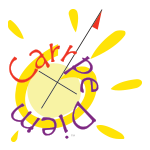I Before Team Except After…
Once again, my Cincinnati Reds are cellar-dwellers for 2019. On an average home game, the Reds’ fans fill just over a third of Great American Ballpark’s 42,319 seats, reflecting the Reds’ ability to lose more than win. There are still gripes about Dick Williams, the general manager, and how he manages. Six-time MLB All-Star Joey Votto is ageing and hot-hitting second baseman, Scooter Gennett, is out with health issues. Bottom line, sports forecasters say the Reds will be lucky to win half their 162 games this season. The Reds’ teamwork is sub-par. So why do we point to sports teams as the pinnacle of teamwork? Yet at all levels of sports, we tend to focus on individuals, not teams.
There is an “i” in team, and we see it every day. “i” is ego. We see the “i” in team from:
- Jerry Jones, NFL Dallas Cowboy owner, who has proclaimed it to be an honor to play for him.
- Danica Patrick, NASCAR, demonstrated her “i” in her expletive-laden rant at her crew in 2017.
- Former NFL Cleveland Brown QB Johnny Manziel’s ego prevented him from being committed and accountable to football and gave him a disregard for authority – essential to being on a team.
- Women’s professional soccer goalie, Hope Solo’s ego has gotten her into trouble numerous times including when she said, “We played a bunch of cowards” (no respect for the other team).
I still recall attending a seminar in 2002 featuring Tom Peters. Peters criticized Jim Collins, Good to Great, on 5th level leadership. Peters asked the audience, “Who wants to follow a humble leader?” Immediately Jesus Christ, Gandhi, and Mother Teresa came to mind. I thought, “Wait a minute. I’m embracing their leadership!”
Who you are is a collection of choices, decisions and experiences you make and have. When you consciously decide to become a member of a team, those decisions and experiences get magnified and minimized at the same time. Google’s Project Aristotle discovered successful cohesion within the team only occurs when team members become interdependent. They need one another to get work done! Team members feel safe sharing not only ideas but opinions. The four parts of Charles Feltman’s Thin Book of Trust – sincerity, reliability, competence and compassion – are fully engaged with each member of the team. Emotional intelligence is at the forefront of each team member’s interaction.
When you let the idealized image of yourself become your focus, you fail to collaborate and cooperate with others, the essential behavior of being on a team. Trust, the lynch-pin to any and every relationship, fails because it’s all about you rather than the team. If you fail at trust, your “i” is showing and thus you fail at being a part of a team.
” The bigger a man’s head gets, the easier it is to fill his shoes.” — Henry A. Courtney







